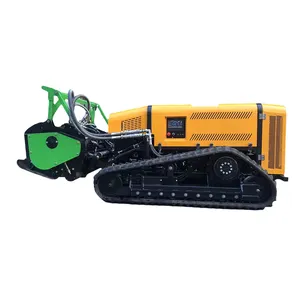Popular in your industry







































































Top categories
About straw biochar
Exploring the Versatility of Straw Biochar
Straw biochar, a product of pyrolyzing straw from various cereals, stands as a sustainable solution in numerous industries. This carbon-rich material, derived from processes involving rice straw biochar and wheat straw biochar, offers a multitude of applications, from soil amendment to waste-water treatment. Its porous nature and large surface area make it an excellent choice for enhancing soil fertility and carbon sequestration.
Types and Applications of Straw Biochar
The types of straw biochar, such as biochar from rice straw, are distinguished by their source material and the specific pyrolysis conditions. Each type possesses unique characteristics that suit various applications. For instance, wheat straw biochar is often utilized in agricultural settings to improve soil properties and increase crop yields. Beyond agriculture, straw biochar serves as a filtration aid, a component in composting systems, and a potential material in the production of eco-friendly building materials.
Features and Material Insights
Straw biochar is characterized by its lightweight nature, ease of handling, and storage efficiency. The material's inherent features include a high porosity and a vast surface area, which are beneficial for adsorbing impurities and fostering microbial activity in soils. The primary materials used in the production of straw biochar are agricultural residues, predominantly straw from rice and wheat, which contribute to the circular economy by valorizing waste products.
Advantages of Integrating Straw Biochar
Incorporating straw biochar into various practices offers several advantages. It enhances soil health, reduces the need for chemical fertilizers, and can aid in water retention in arid regions. The use of straw biochar in environmental management practices also underscores its role in carbon sequestration, potentially mitigating the impact of greenhouse gases. Furthermore, its role in waste management exemplifies its versatility and contribution to sustainable practices.
Considerations for Business Use
Businesses across sectors can leverage the benefits of straw biochar. In the agricultural sector, it can be part of a strategy to improve crop yield and soil vitality. For environmental management companies, straw biochar is a tool for water purification and waste treatment processes. Its adaptability makes it suitable for a wide range of business applications, aligning with the growing demand for sustainable and eco-friendly products.
Conclusion
Straw biochar is not just a product; it's a sustainable choice for businesses looking to incorporate eco-friendly practices into their operations. The diversity of its applications, from rice straw biochar in soil amendment to wheat straw biochar in waste management, demonstrates its multifaceted value. As the global market continues to recognize the importance of sustainability, straw biochar stands out as a material that can meet this demand while contributing positively to the environment.




























